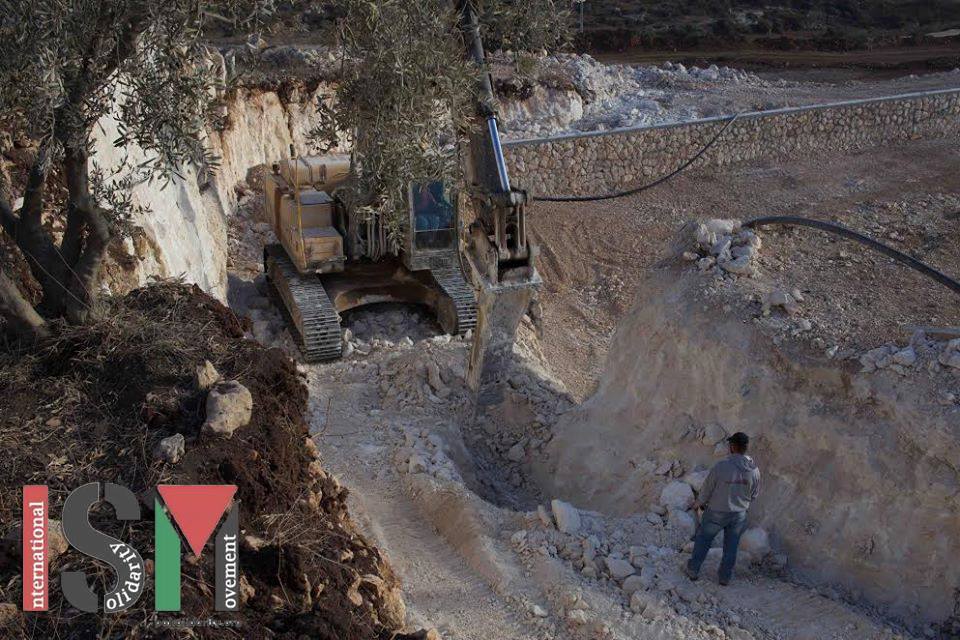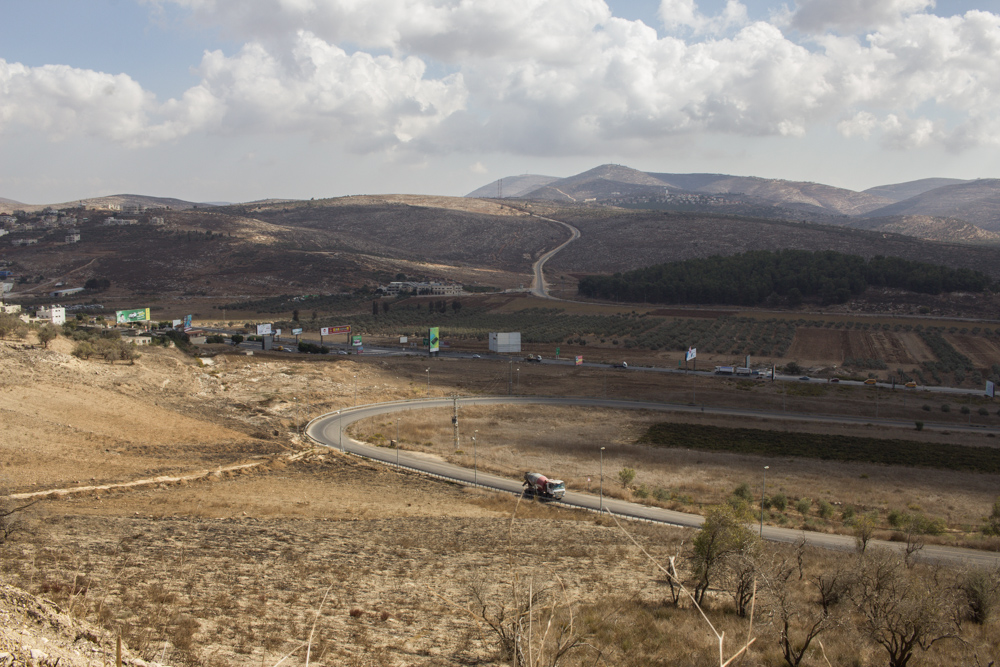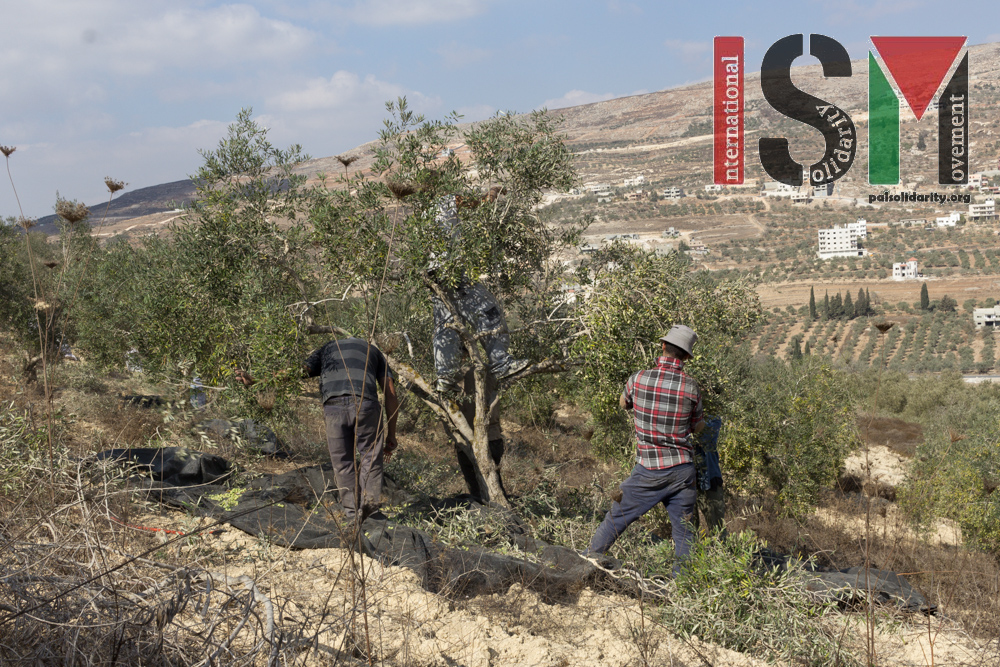Tag: Olive Trees
-

Olive harvest and Colonialism in expansion in Kafr ad Dik
12th November 2016 | International Solidarity Movement, Huwwara team | Kafr Qalil, occupied Palestine For the past six days, international activists joined a Palestinian farmer, Fares Deek, in the harvest of his olives outside Kafr ad Dik village, located inside Salfit governate. For the past 16 years, the area has been a target of expanding…
-

Olive harvest in Kafr Qalil and protective presence
2nd November 2016 | International Solidarity Movement, Huwwara team | Kafr Qalil, occupied Palestine On 31st October international activists joined a Palestinian farmer and his family in Kafr Qalil to pick their olives. There was no interruption during the harvest this day, but there was a strong sense of pressure that is always present for…
-

Protective Presence at Burin olive harvest
24th October 2016 | International Solidarity Movement, Nablus-team | Burin, occupied Palestine Today, international activists joined members of the Najjar family from the village of Burin to harvest their olives and provide a protective presence should settler colonists or Israeli forces attempt to attack and disrupt the harvesting. Thankfully, there were no violent incidents todayand the…
